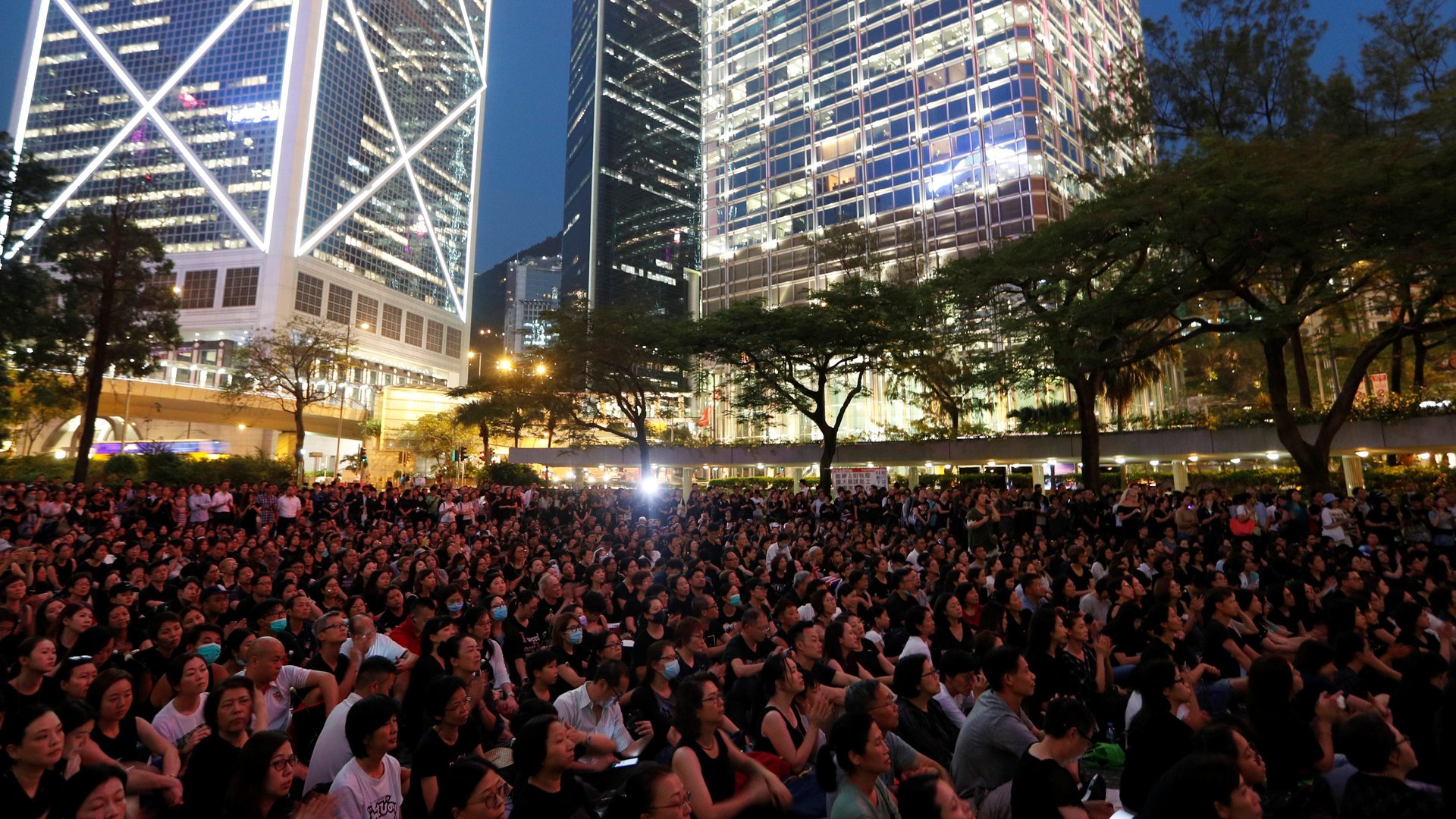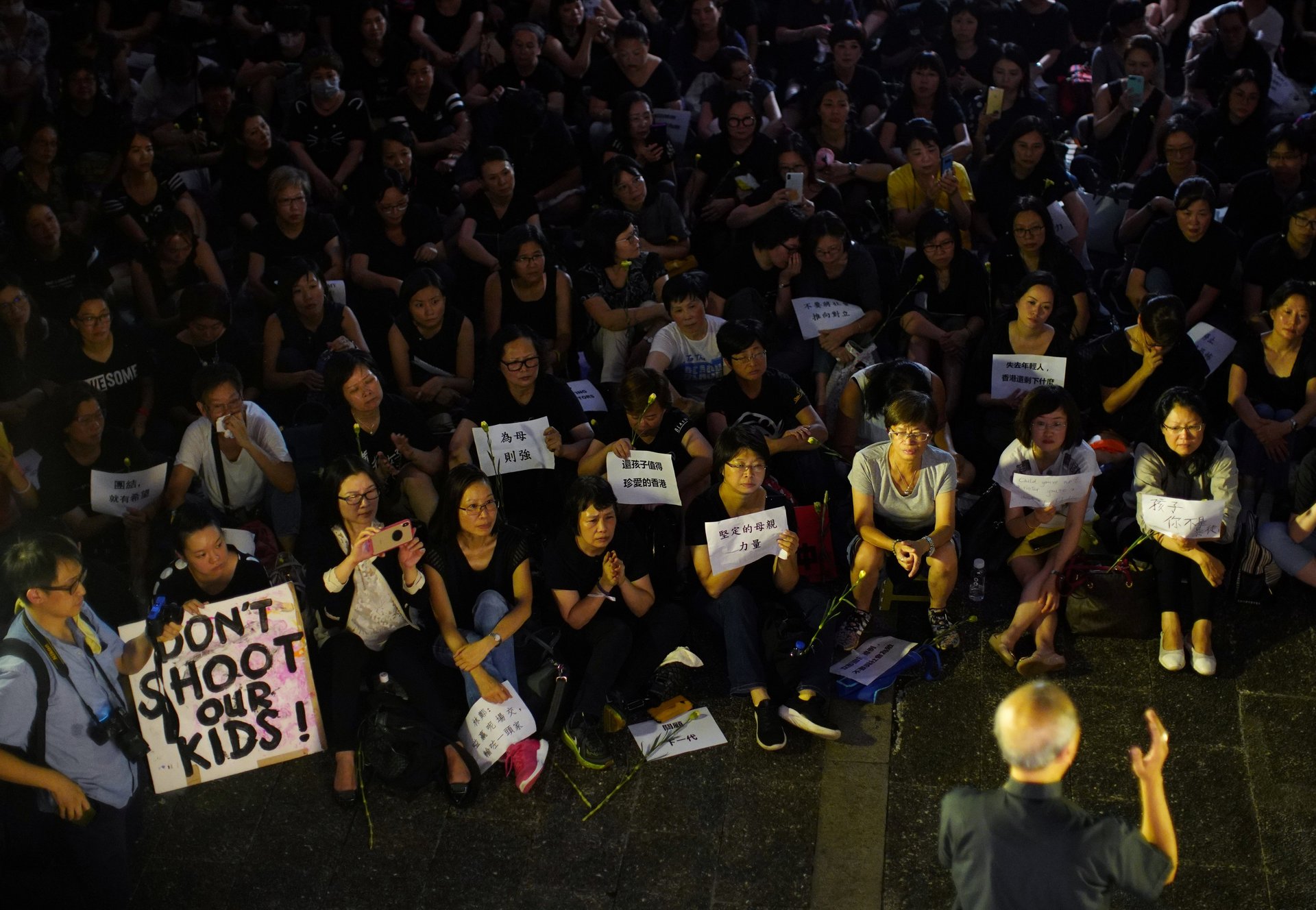Hong Kong has pulled off an amazing win against a dire threat to its freedoms
The odds were long but the million people who turned out last Sunday—and the tens of thousands who circled government offices—did it. Hong Kong’s chief executive Carrie Lam today (June 15) changed course, saying she had decided to indefinitely suspend a controversial bill that would have made it possible to extradite people from the city to China’s mainland to face trial.


The odds were long but the million people who turned out last Sunday—and the tens of thousands who circled government offices—did it. Hong Kong’s chief executive Carrie Lam today (June 15) changed course, saying she had decided to indefinitely suspend a controversial bill that would have made it possible to extradite people from the city to China’s mainland to face trial.
“In the last week tens of thousands of people took place in processions and marches,” said Lam. “Serious conflicts broke out…We have to take into account the prevailing consensus. First of all we need to restore peace and order in Hong Kong.”
Lam thanked pro-Beijing lawmakers for sharing their views with her in public and in private, urging her to “pause and think” about the wisdom of moving forward. No deadline would be set to resume the bill, she said, and instead the government would “listen to all views” with a “humble” attitude. The bill was not being withdrawn, however, she clarified, and insisted its objectives were good for Hong Kong.
The announcement came after a week that saw thousands of young people occupy the city’s central government district in scenes reminiscent of 2014’s pro-democracy protests, known as the Umbrella Movement, demanding the law be scrapped. Civil society groups and lawyers have warned that the overhaul of Hong Kong’s extradition laws posed the most dire threat yet to the city’s legal independence and freedoms, enshrined under the “one country, two systems” framework, since the former British colony returned to Chinese sovereignty more than two decades ago.
How things turned around
Clashes broke out June 12 between some of the protesters and riot police, who fired rubber bullets and tear gas at demonstrators, and more than 80 people were injured. Lam said the injuries to law enforcement, media workers and the people of Hong Kong were a major factor in her decision.
By yesterday, a top adviser to Lam and pro-Beijing lawmakers were expressing concern about pressing ahead with the bill in face of such opposition. Last night, Lam conferred with Han Zheng, Beijing’s point man for Hong Kong affairs, and cabinet officials until midnight, according to the Hong Kong Free Press newspaper. Lam would not confirm the meeting in her press conference, but said she had consulted with the central government.
This morning, rumors swirled the bill was set to be indefinitely postponed, similar to what happened with a feared piece of national security legislation in 2003.
The need to amend the city’s current extradition laws, which don’t allow for suspects to be sent to the mainland, ostensibly arose earlier this year because of the case of a Hong Kong man, Chan Tong-kai, who murdered his pregnant girlfriend in Taiwan, and then returned here, where he could not be tried for murder. Now serving time on money-laundering charges for misusing his girlfriend’s ATM card in Hong Kong, he confessed in court to the killing.
But opponents warned of “legalized kidnapping,” referring to the Hong Kong booksellers who were abducted by Chinese agents and taken to mainland in 2015. Many foreign governments also expressed grave reservations about the legislation.
Taiwan was the most vocal. Taiwanese president Tsai Ing-wen strongly expressed her support for protesters in Hong Kong, and said that it would not ask for Chan to be extradited if Hong Kong passed the legislation. Lam referred to Taiwan’s opposition in her remarks today.
“In consideration of the overt and clear expression by Taiwan…the original urgency to pass the legislation within the current legislative year is perhaps no longer there,” said Lam.
Some commentators believe that Lam’s announcement is likely a face-saving way to withdraw the bill, without actually doing so. In the case of the reviled 2003 legislation, for example, meetings on the bill were canceled and eventually it lapsed and was never taken up again.
Tensions remain in Hong Kong
Hong Kong’s struggles against this bill have been a remarkable lesson in the resilience required to face creeping authoritarianism. Protesters focused on the vital role of taking action to be heard, rather than dwelling on the likely outcome. One protester among the many who were out last Sunday said he was not hopeful the government would listen to them. But he said he had to come out regardless, calling the struggle against the bill the “last fight” for Hong Kong.
As recently as Monday, Lam vowed to press ahead with the bill a day after a million people gathered against it—but the tide turned after Occupy 2.0. Taking questions for about an hour after her remarks, Lam several times dodged questions on whether she would resign for her missteps in the process, and for the chaos the city saw this past week.
Lam also would not criticize the police force’s response to the protests, which many condemned as heavy-handed. Last night thousands of mothers gathered in central Hong Kong, carrying placards that said “don’t shoot our children.” Instead, she said the protesters had engaged in violence, and that police were taking defensive action.

Today’s concession appears to have come too late to defuse tensions—anger remains over police actions, and many in the city were unhappy with her remarks, and her continued efforts to defend the bill. If anything, it also showed the effectiveness of more radical action, given the climbdown came after Wednesday’s street occupation, and not after the larger and more peaceful march a week ago. Another march has been called for Sunday (June 16).
“Lam’s suspension of the extradition bill falls short of meeting Hong Kong people’s demand to have it withdrawn altogether,” said Jason Y. Ng, convenor of the Progressive Lawyers Group, which advocates for the rule of law and democracy in Hong Kong. “Furthermore, she refused to take responsibility for the excessive police force unleashed on protesters and for tearing society asunder. This will be unlikely to mollify civil society and we are expecting another big turnout at the march tomorrow.”